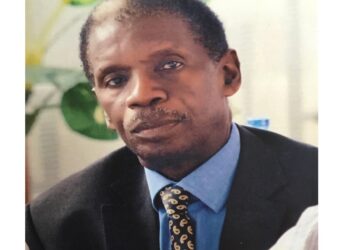Wednesday next week marks 36 years since the resilient and glorious National Resistance Movement/Army (NRM/A) led by Yoweri Kaguta Museveni captured Kampala. The battle for Kampala marked the defeat and retreat of fascist remnants ending reigns of terror, uncertainty, and political anguish that accompanied national ruin and state collapse for two decades since independence. The two year Covid19 lockdown means that many Ugandans are experiencing social and economic hardships but will hopefully emerge stronger, after-all, the Idi Amin and UPC II eras that preceded NRM were longer and harder.
President Museveni’s inauguration on January 29, 1986, and formation of government, was not a walk-on-experience because many combatants were young idealists, mostly below thirty years, and inexperienced. But with a bundle of political old guards from DP and CP, Museveni ushered in high expectations among skeptical Ugandans who had endured UPC I, Amin, UNLF/A, UPC II, and six-months of an illiterate military junta.
Through those dark days, Ugandans high and low, suspected of real or perceived political dissent, were detained, killed, forced underground, or fled into exile near and far. Often, the detentions were without trial before any court of law. The effects of arbitrariness and high-handedness led to the total collapse of rule of law, constitutionalism, democracy, state institutions, and national economy pushing Ugandans into extreme despair. The advent of UNLA and UPC II were supposed to bring national unity, but instead, disunity, unprincipled alliances, mismanagement and anarchy reigned. Therefore, incidences of impunity and recklessness by state security officials and institutions creeping back must be strongly repudiated and abusers made to account.
The countrywide restoration of peace, security, and stability, reconstruction of social services, physical infrastructure, vibrant economy and democracy is supposed to be a watershed, not dejection. This year’s theme “Celebrating 36th NRM/A Victory Day: A call to duty for compatriots to contribute towards socio-economic transformation journey”, Ugandans, should reflect if the gains made, are shared and irreversible.
The numerous sacrifices made, often drenched in blood, over this period, ought to be considered as stepping stones towards larger and long-term process of nation-building and shared prosperity. The elimination of corruption and abuse of power should be a tribute to all Ugandans. From new brooms, NRM today comprises old and diverse young soft brooms that should know all the corners to sweep better and cleaner. During this year, we should jointly work to reduce and where possible, eliminate the rough brushing between government and the opposition, and it’s gratifying to see NRM and UPC that fought each working together to consolidate our collective gains.
It’s distressing, that some NRM leaders exhibit careerism and love for soft money, but they should know that the momentum in Uganda’s Second Liberation struggle has been sustained, more, by force of conviction in just causes stood for and pursued, often under very difficult circumstances. The freebooters have become calculative sycophants, difficult to detect and uproot, giving the NRM a low bar. Today, most Ugandans are standing on the shoulders of many forgotten and perhaps even unknown heroes, lying in unmarked graves, whose vision and mission should be translated into sustained, tangible and durable reality.
And while some elements in opposition political groups and social critics continue to be disingenuous refusing to acknowledge the achievements of the last three decades, posterity and time usually don’t cheat. Achievements in universal education, health and economy have engendered new challenges like unemployment, especially for the educated and skilled, but the foundation for a better future is being laid. We must collectively work creatively and innovatively to improve production and productivity.
Like President Museveni has often advised, the agriculture is a good sector to start with because it can provide sufficient food, employment and incomes for many homes, if value addition is applied targeting domestic and regional markets. With the broad spectrum of crops like coffee, cotton, tea, cocoa, sugar, fruits, and wood products, diary, beef and leather, socio-economic transformation is achievable.
Equally, physical infrastructure like roads, electricity, ICT and housing, as well as social services, health, education, water and sanitation, youth and women empowerment have all registered phenomenal progress, and contributing to expand opportunities, lower investment and business costs.
The Vision 2040, to transform Uganda from a predominantly peasant economy to a prosperous country has been pursued through NDP I, II and III focusing mainly on consolidating wealth creation, employment and building infrastructure to attain middle income status. Regardless, disquiet is rising and spreading about the direction and pace of progress in governance and inclusive growth. Too many people, young and old, educated and un-educated, lazy and those able and willing to work are left behind, and NRM leaders must be concerned with the widening disparities because it’s a rising powder keg.
While many Ugandans acknowledge achievements of the past three decades, the old malaise of corruption and abdication of responsibility by public servants and citizens need stronger and decisive actions. Despite these challenges, Ugandans should not surrender to fate, but recommit themselves to continue the journey of building a prosperous Uganda.
Do you have a story in your community or an opinion to share with us: Email us at editorial@watchdoguganda.com












